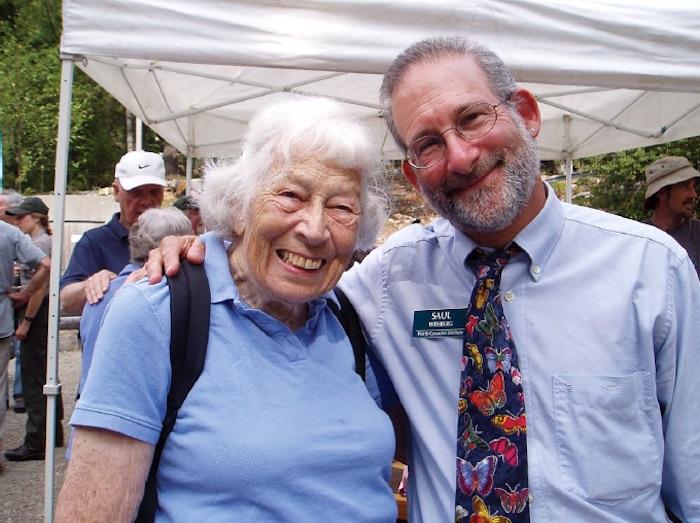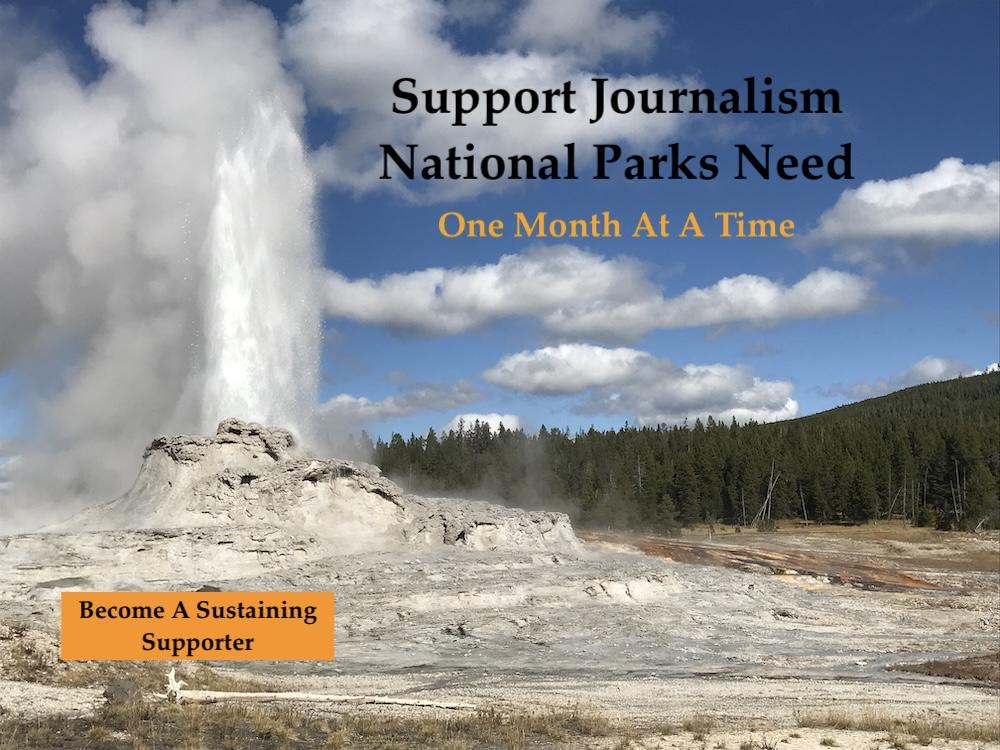
The late Polly Dyer and North Cascades Institute founder and Executive Director Saul Weisberg at the North Cascades Environmental Learning Center / NCI
In the North Cascades, a mosaic of public lands—national, state, and provincial parks, national forests, wilderness, and recreation areas—protects many of the region’s most beloved areas. It’s easy to take their stewardship for granted—few today would argue against preserving natural treasures like Mount Baker, the Picket Range, Cascade Pass, and Suiattle River—but in truth, Washingtonians owe a great deal of gratitude to early visionaries like Polly Dyer.
Without Dyer and her ilk, imagine what might have been: Clear-cuts in the Stehekin Valley. A half-mile-wide open-pit copper mine in the shadow of Glacier Peak. The ancient cedars of the Little Beaver Valley drowned underwater.
Dyer’s six decades of writing letters, organizing volunteers, attending meetings, serving on committees, and lobbying legislators in both Washingtons, have helped keep some of our most spectacular landscapes intact. And in the era before social media, virtual meet-ups, and online petitions, those conservation efforts required a lot of legwork, fundraising, face-to-face negotiations, and pots of coffee.
Preserving wild places has been Dyer’s undying passion. “It is a priceless asset which all the dollars man can accumulate will not buy back,” she testified before the U.S. Senate, in support of what would become the Wilderness Act of 1964. With fellow conservationist Howard Zahniser, she is credited with the elegant definition of wilderness enshrined in that legislation: “an area where the earth and its community of life are untrammeled by man, where man himself is a visitor who does not remain.”
As environmental conservation slowly took hold in the national consciousness in the 1960s, all eyes looked toward the North Cascades. The Sierra Club, Wilderness Society, The Mountaineers, and countless local groups were determined to win permanent protection for the “American Alps.”
President Lyndon Johnson signed the North Cascades Act in 1968, creating North Cascades National Park, Ross Lake National Recreation Area, Lake Chelan National Recreation Area, and nearly one million acres of wilderness in the neighboring Glacier Peak and Pasayten highlands.
“Dyer’s drive has been to protect wilderness areas, preserving them as places where the force of nature—rather than the will of human beings—prevails,” historian Paula Becker writes. “Banding with others who fervently believe protecting wilderness areas matters, and steadily recruiting new supporters for the conservation movement, has been her life’s work.”
Originally published in The North Cascades: Finding Beauty and Renewal in the Wild Nearby, Braided River Books



 Support Essential Coverage of Essential Places
Support Essential Coverage of Essential Places






